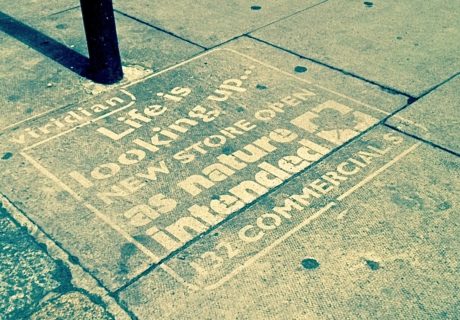Walk into any department store in Europe and you’ll find yourself assaulted on all fronts by a dizzying array of cosmetic counters, a thick fog of chemically enhanced fragrance and over-zealous, commission-paid reps wearing painted-on Cheshire cat grins.
It’s enough to make you feel like you’ve fallen down the rabbit hole and wound up in Alice’s not-so-Wonderland, especially when you throw in the price tag, ingredients and carbon footprint of some of the products on display.
So why not make a small change this year, and in exchange for being as mad as a March hare, try being as certified as a September bee?
That’s the aim of Organic Beauty Week, to create a buzz around its ‘Small Change, Big Difference’ campaign.
Taking place on 8-14 September it’s a celebration of organic beauty as a whole, with a spotlight on Soil Association certified brands.
Seeking to raise awareness of the many benefits associated with using organic beauty products, it also ties into the wider Organic September festival run by the Soil Association, which champions all aspects of organic living, from farming, food and drink, through to beauty, textiles and fashion.
Myriad events, promotions and partnerships are planned by a host of credible organic pioneers — both brands and retailers — but when it comes to communicating eveything that certification has to offer, it’s fair to say they’ve got their work cut out.
Organic health and beauty sales may have increased by 17 per cent last year, but there is still no legal regulatory body monitoring organic beauty. The COSMOS-standard, developed by the five leading European natural and organic standards organisations, remains very much in its infancy.
Described by the chief executive of the Soil Association Helen Browning as the “gold standard”, COSMOS has been developed to try and make sure there is an international voluntary regulatory framework to ensure the consumer is not misled, and have rigorous standards around beauty the way we do around food.
But when journos, PRs and industry insiders gathered at the Organic Beauty Week press launch in June it was unanimously agreed that it will take a concerted marketing campaign to successfully communicate the intricacies of COSMOS and all it has to offer, not to mention certification as a whole.
Whole Foods Market, one of the leading natural and organic retailers and an active participator in Organic Beauty Week took the significant decision in 2010 to remove all beauty brands from its shelves in the UK that make organic claims without being backed up by certification. Now that’s the type of change that is needed.
Retailers taking accountability away from the consumer and placing it on their own shoulders is one sure-fire way of making sure change happens. But in those four years since Whole Foods made its brave leap, how many other retailers have followed its lead?
So how about this September, in addition to offering up tasty organic in-store delights labelled ‘EAT ME’ and ‘DRINK ME’, why not hang a ‘CERTIFY ME’ label on all false organic beauty claimants, and ship them back to sender? One small change that is sure to make a very big difference.
Julia Zaltzman is a freelance writer and editor of The Natural Beauty Yearbook




